- November 23, 2024
-
-
Loading

Loading
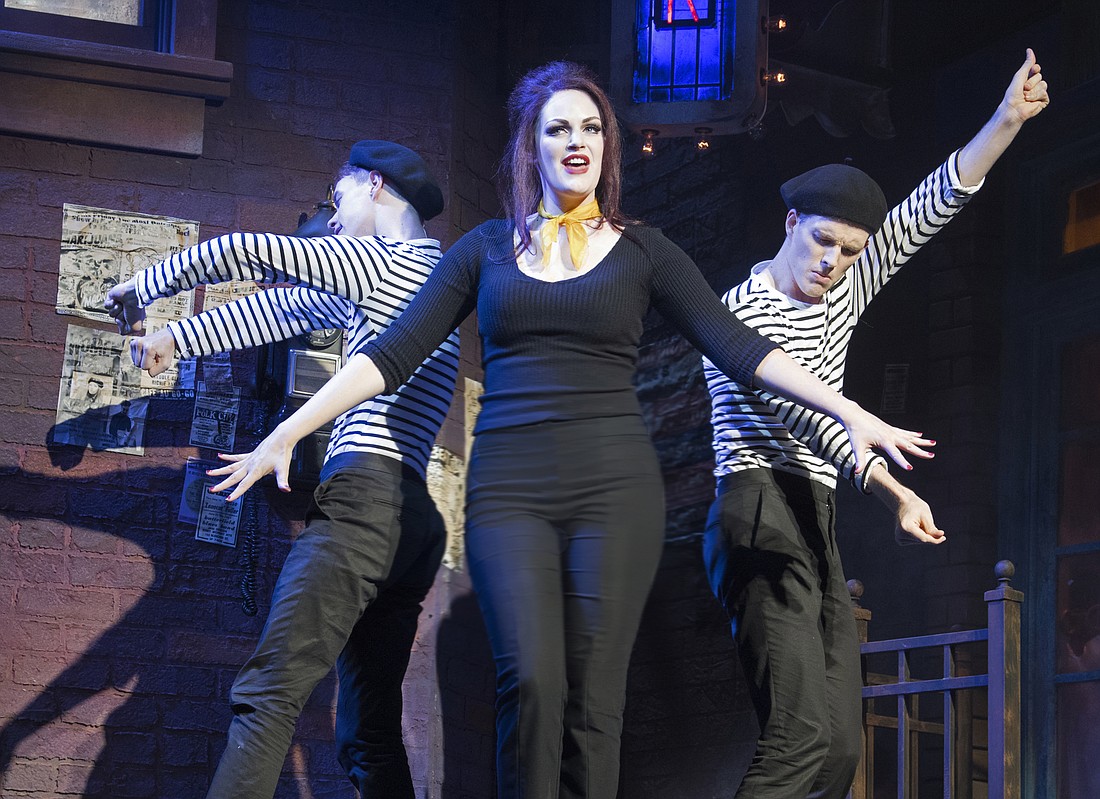
Asolo Rep closes out this season with a musical adaptation of a horror comedy by Roger Corman — the original guerilla filmmaker. It’s the tale of a nebbish Faust who performs increasingly horrific acts in pursuit of the woman he loves. “Little Shop of Horrors,” right? Wrong. The musical is Glenn Slater and Wendy Leigh Wilf’s “Beatsville.” An adaptation of Corman’s “A Bucket of Blood” from 1959.
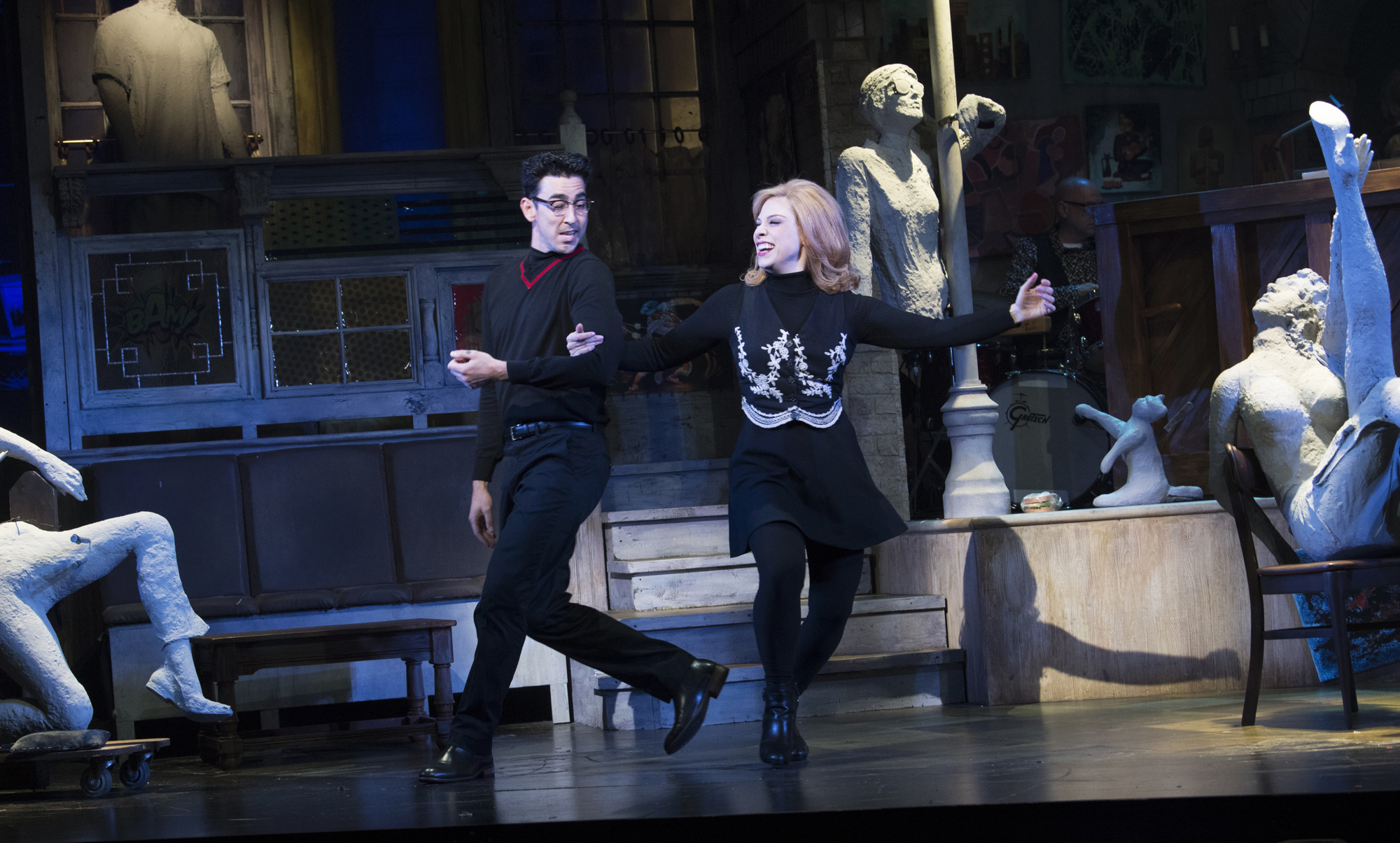
In Corman’s original, low-budget movie, a loser named Walter accidentally kills his landlady’s cat and covers it in clay to hide the evidence. Before this deed, he was a tragically square busboy at a boho coffee shop in Greenwich Village. But thanks to his “Dead Cat” statue, Walter becomes the darling of the hipster art scene — and also impresses a pretty waitress he’s fallen in love with. The in-crowd’s applause prompts our emerging young artist to explore a new artistic medium — dead people. This bold, new sculptural series requires corpses, of course. Originally, Walter’s subjects die accidentally. Eventually, they die by the artist’s own hand. Art demands sacrifice, eh? In the movie, Walter’s the final sacrifice. He doesn’t make real art; he doesn’t get the girl; he gets what’s coming to him.
Not a feel-good story, my friends. Or is it?
If you put it in a headlock and wrestle it to the ground, yes it is.
Slater and Wilf’s musical adaptation sticks with the movie’s basic set-up, then takes a hard left turn to Happy Ending Land. (Hold that thought.) For now, let’s accentuate the positive …
And there’s plenty of positivity to talk about.
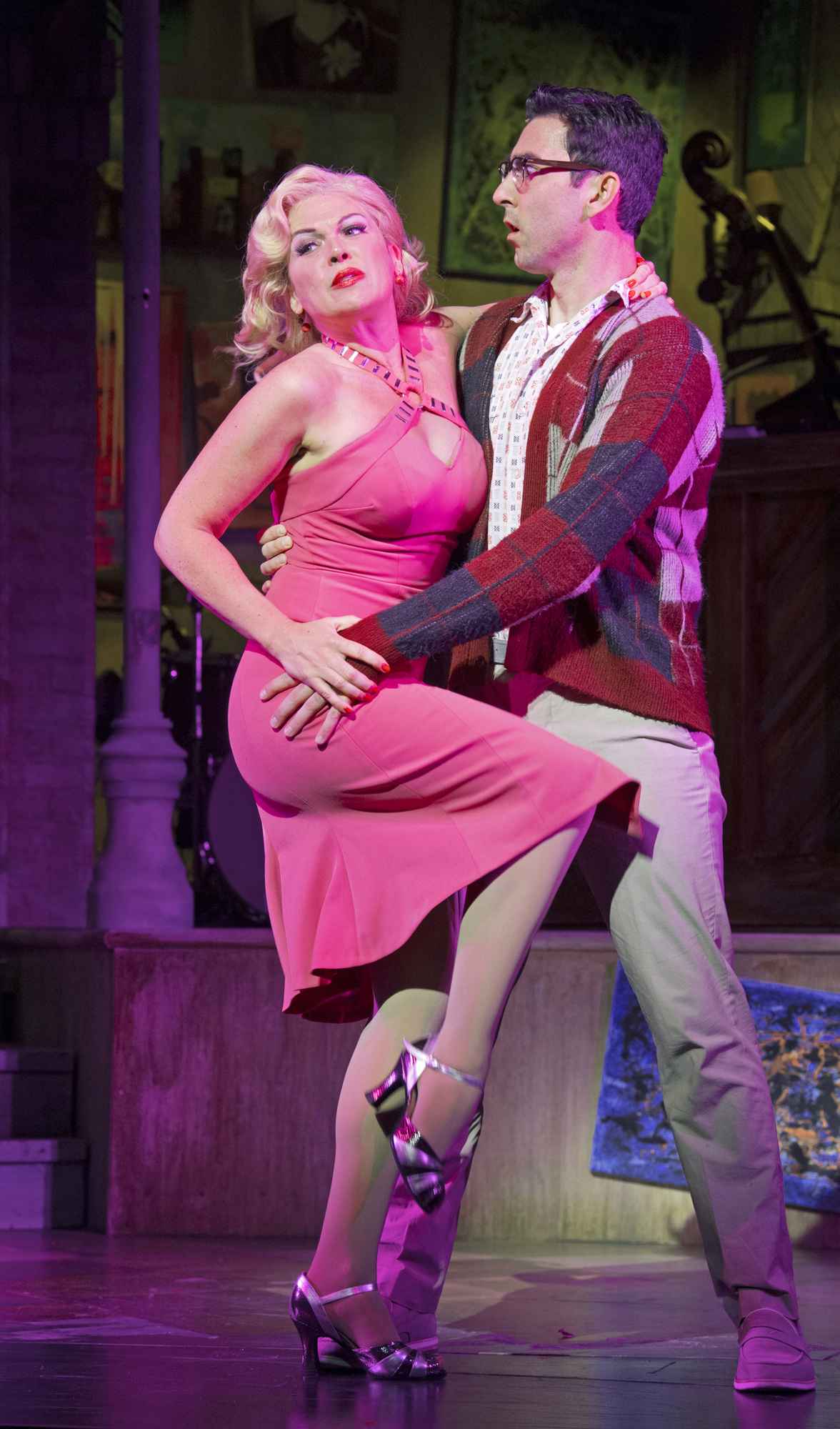
Bill Berry’s direction is kinetic and fast-paced. Slater’s snarky dialog consistently pushes the audience’s laugh button. (And it works!) Wilf’s syncopated songs are witty and well-written — though they feel more like ’40s swing than ’50s bebop. David Gallo’s richly detailed set is dead brilliant: a turntable affair that rotates from a street scene, to the café interior, to Walter’s dingy apartment. David C. Wollard’s costumes are amazing, if occasionally dead wrong for the times. JoAnn M. Hunter’s edgy, sexy, high-energy choreography is outstanding, though it requires a suspension of disbelief. (The real Beatniks didn’t hit the gym all that often.) And those singing/dancing actors are good too!
Walter’s guilt is his innocence. He’s a fall guy, a clueless Candide, the trusting friend who gets stuck with the check. Max Crumm pulls it off beautifully. Lauren Marcus lights up the stage as Walter’s heartthrob, Carla, with the gee-whiz charm her character requires. Ann Morrison is a one-woman laugh factory as Mrs. Zwicker, Walter’s nosy landlady. (She noses into his flat; he tries to get her out. That’s the gag.) Her comic timing’s on the level of Imogene Coca. Michael Thomas Holmes gets his share of laughs as Leonard, the coffee shop owner, who endures a perpetual anxiety attack as his café fills up with plaster-coated stiffs. (A fact Leonard knows and tolerates for financial reasons.) Cayman Ilika and Charlie Johnson and Connor Russell play a freak chorus singing bad advice into Walter’s ear. She’s slinky; the guys are rubbery; they’re all funny. Billie Wildrick is a real live wire as Naomi, a sex bomb and Marilyn Monroe lookalike slumming in Greenwich Village. Brock (Brandon O’Neill’s faux Ferlinghetti poet wannabe) has the closest resemblance to an actual beatnik. Andrew Chappelle makes a memorable if brief impact as Lou, an undercover narc and one of Walter’s early art projects.
Let us not forget the actual, factual jazz combo playing in the background, with Tom Ellison on sax and Jon Berger banging the ivories. When they’re moving stuff around, these cats get to wail. Their improvisational intervals actually sound like the music of the times.
That concludes our stroll on the sunny side of the street. Now let’s take a walk on the negative side, baby.
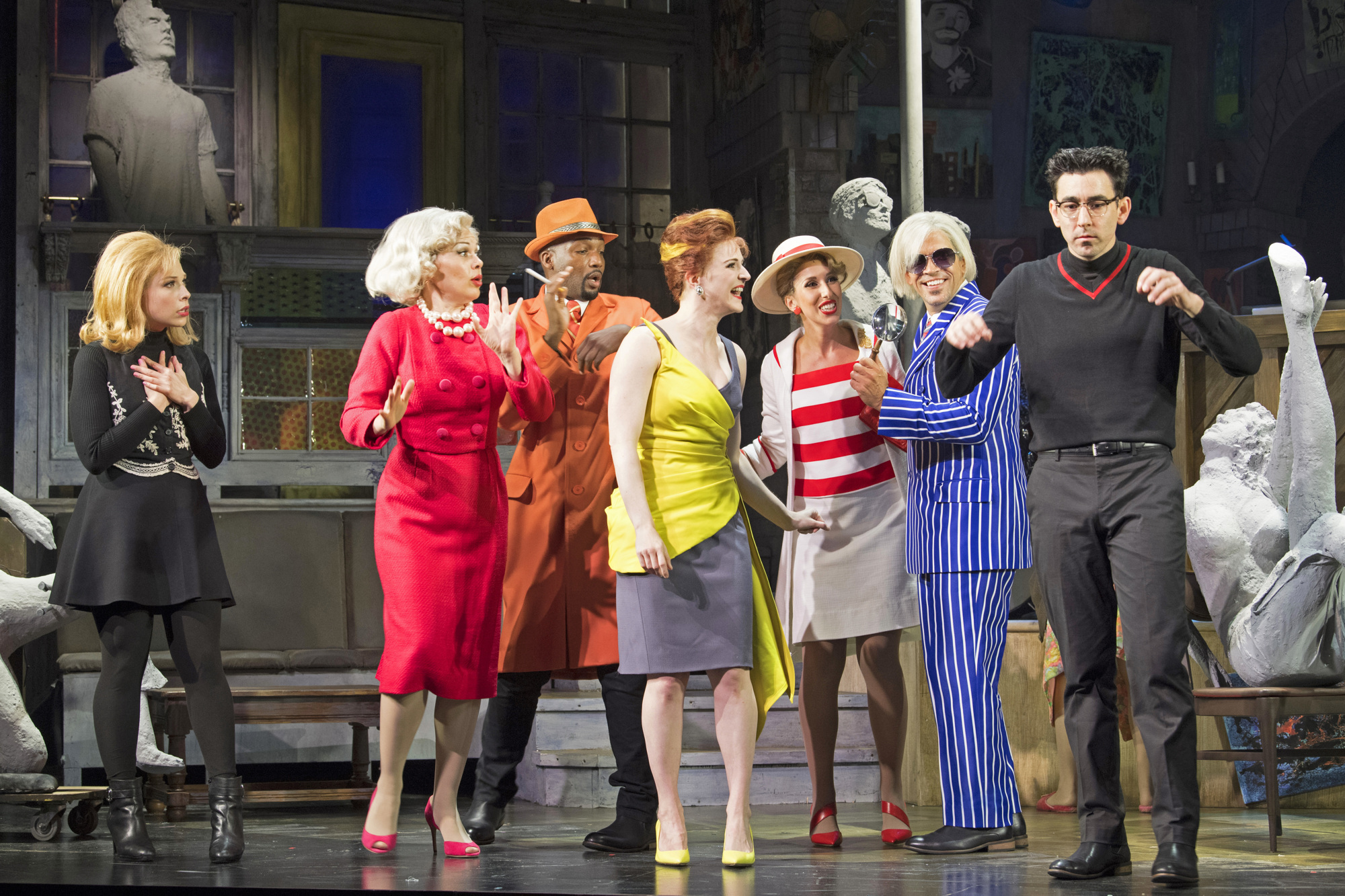
Despite the massive talent behind it, this musical has three core problems. Please imagine a bongo drumbeat as I list them:
Problem the first? The caricature of the Beatnik scene gets it wrong.
The show tunes are closer to the Andrews Sisters than Charlie Parker. The dialog is thick with anachronistic slang. (“Blow your mind,” “objectify women,” “establishment,” and other catch phrases from the ’60s and ’70s.) The original Beats didn’t use such terminology, daddy-o. And they most certainly didn’t dress like French mimes. Love the set, though.
Yes, I know it’s a satire. The “non-conformist” Beats were a mindless flock just like the squares they scorned. I dig. But a satire is a distorted, funhouse mirror. The good ones closely mimic what they mock. This mirror needs some polishing.
The second snafu? The horror comedy lacks horror.
The happy spectacle flinches from the original story’s dark tone. The musical’s tone and tunes remain relentlessly upbeat, often clashing with the dirty deeds on stage. Despite the increasing body count, you feel no sense of horror — or a tragic foreboding of Walter’s Faustian fate. Movie Walter hangs himself; Musical Walter lives on. The tacked-on happy ending is as phony as a Walt Disney cartoon. Holden Caulfield would walk out in disgust.
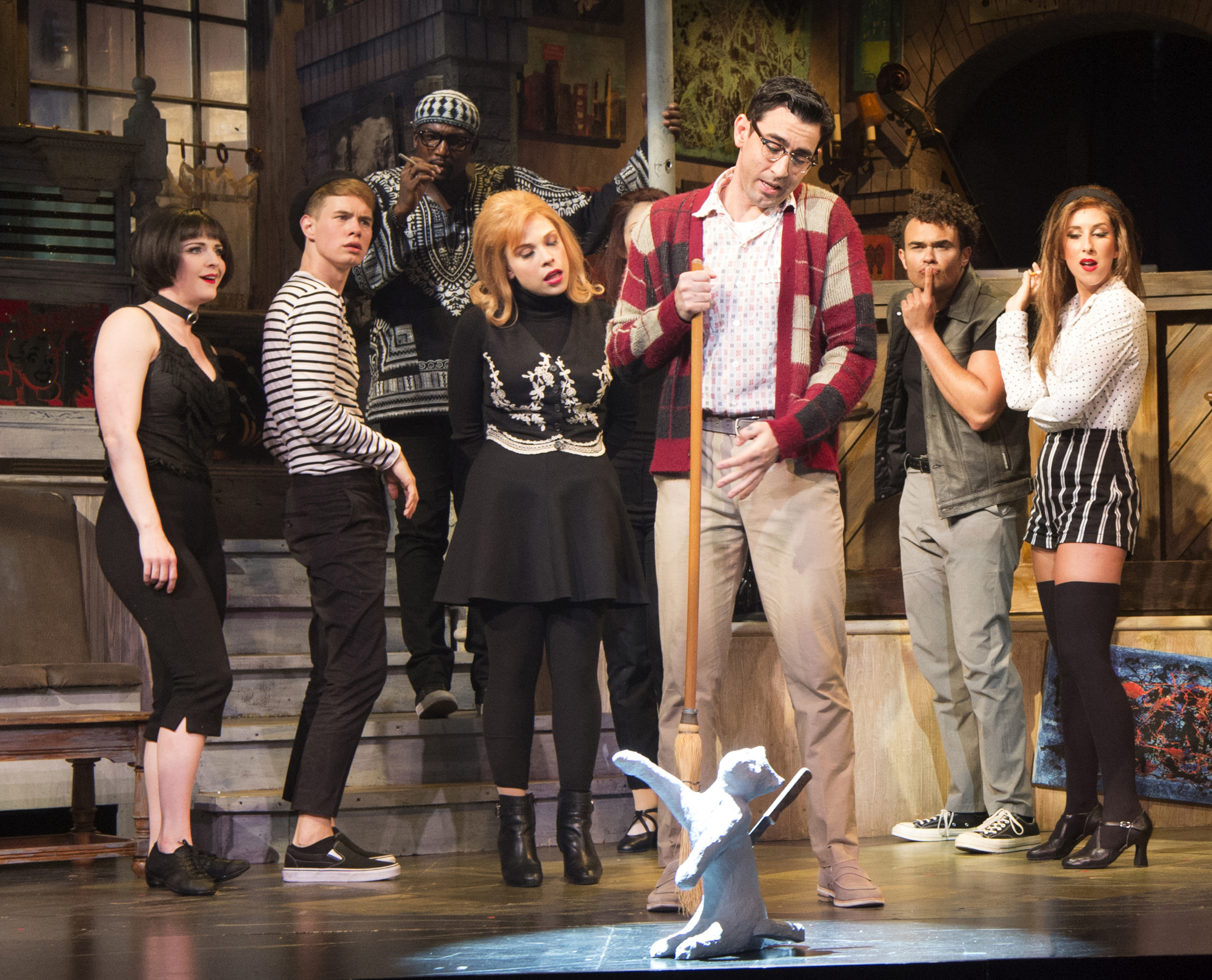
The third tragic flaw? Walter’s turn to the dark side comes out of nowhere. And makes absolutely no sense.
The character was simply a creep in Corman’s movie. Creeps do creepy things; no explanation is required. In this musical, Walter’s a nice guy — a sympathetic character we can all identify with. In the first act, his killings are all accidental. In the second act, they’re intentional. So … Walter’s suddenly a psycho killer? And we’re still supposed to like him? Well, if he’s doing it for love and social acceptance, I guess that makes it OK.
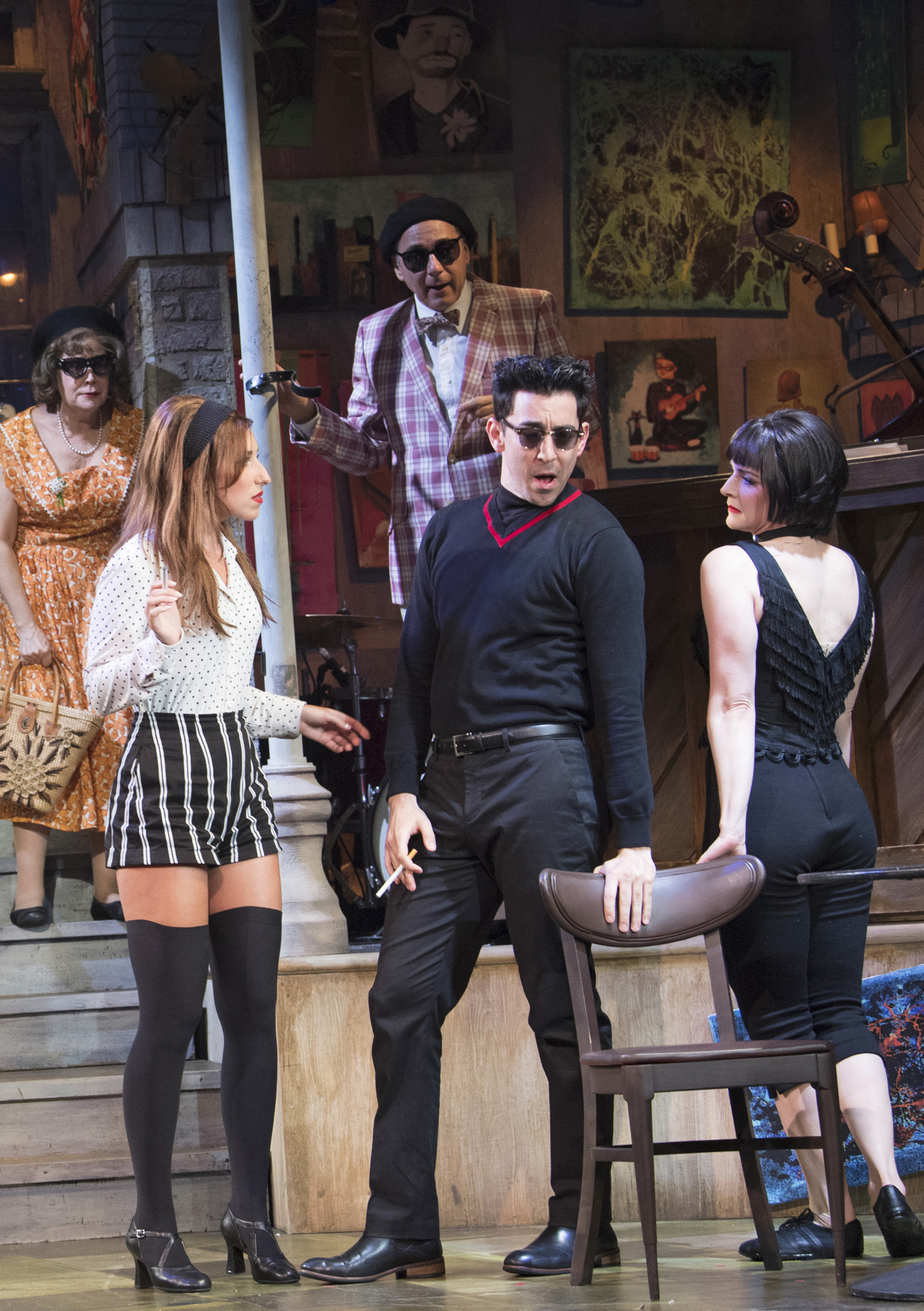
For these stupidly sad reasons, this happy, clever musical falls short. At least for theatergoers who think too much.
Which brings us to the division of sheep and goats.
If such trivial, bourgeoisie concerns as logic, character and causality fail to rattle your cage, please ignore this critic’s analytical diatribe. Does your heart cry out for an upbeat, Broadway-bound trifle to dazzle you with spectacle, distract you with pizzazz and divert you with energetic tunes? By all means, follow your heart and enjoy a night at the theater.
If your heart cries out for a faithful musical distillation of a rude, crude Roger Corman horror comedy, rent a copy of Robert Zemeckis’ “Little Shop of Horrors” and stay home.
The choice is, like, yours.